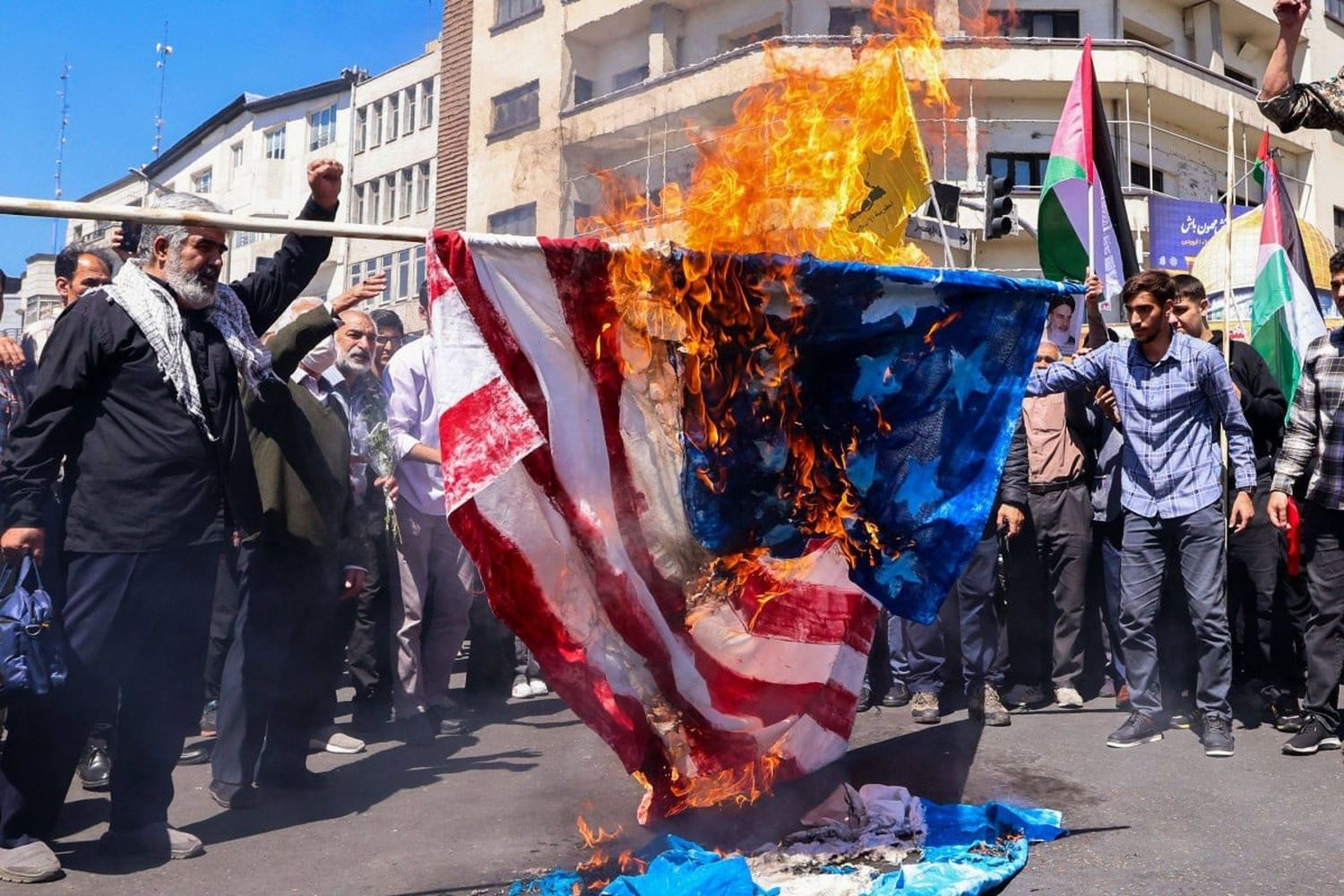Israel-Gaza War
Iran Warns US to 'Step Aside' in Anticipation of Retaliation Against Israel for Syria Strike
In a significant escalation of tensions in the Middle East, Iran has issued a stark warning to the United States to "step aside" as it prepares a response to a suspected Israeli airstrike on its consulate in Damascus, Syria. The attack, which demolished the Iranian diplomatic building and resulted in the deaths of at least seven Iranians, including two generals, has spurred fears of a renewed aim at U.S. interests in the region.
The strike, attributed to Israel by both Syrian and Iranian officials, targeted the Iranian embassy's consular annex in Damascus on Monday. Among the casualties were Brigadier General Mohammad Reza Zahedi and his deputy, Brigadier General Mohammad Hadi Haji Rahimi, both senior commanders in the Islamic Revolutionary Guard Corps (IRGC). The attack has been condemned by Iran as a "gross violation of international regulations," particularly the 1961 Vienna Convention on Diplomatic Relations.
In a message to Washington, Mohammad Jamshidi, the Iranian president's deputy chief of staff for political affairs, explicitly warned the U.S. not to get entangled in what he described as "Netanyahu's trap," referring to Israeli Prime Minister Benjamin Netanyahu. The message underscored the heightened risk of a broader conflict that could draw in the United States, given its close alliance with Israel.
The U.S. has not publicly commented on the alleged message from Iran. However, reports suggest that the U.S. is on high alert and is preparing for a "significant" response from Iran against Israeli or American targets in the region. This preparation comes amid concerns that any attack could specifically target "military or intelligence targets, rather than civilians."
The Biden administration has taken the unusual step of communicating directly to Iran that the U.S. was unaware of the strike in Damascus, indicating an effort to prevent its own forces and bases in the Middle East from being targeted in retaliation. This diplomatic move reflects the deep concern within the U.S. administration that the Israeli strike could lead to regional escalation and the resumption of attacks by pro-Iranian militias against U.S. forces.
Iran's Supreme Leader, Ayatollah Ali Khamenei, and other Iranian officials have vowed retaliation, stating that Israel will be "punished by the hands of our brave men." This has led to speculation about the nature and timing of Iran's response, which could range from a direct military strike to asymmetric warfare through its network of proxies in the region.
The attack on the Iranian consulate in Damascus marks a significant escalation in the ongoing conflict between Israel and Iran, two archenemies whose rivalry has increasingly played out in Syria and other parts of the Middle East. Israel has long targeted Iranian interests in Syria, where Tehran's influence has grown since it backed President Bashar al-Assad in the Syrian civil war that erupted in 2011.
As the region braces for Iran's response, the international community remains on edge, concerned about the potential for a wider conflict that could draw in multiple countries and destabilize an already volatile Middle East. The coming days and weeks will be critical in determining whether this latest incident will lead to further escalation or if diplomatic efforts can avert a broader confrontation.

